Rosie and David Nunz operate Dayspring Eggs in Olathe, CO. They bought the business about three years ago after David retired from his career as a builder. In addition to raising about 1500 birds of their own, they source eggs from three other local farmers to sell under the Dayspring name. At their small facility, they wash and package up to 30,000 eggs in a week.
Using a color-coded system, they keep track of which eggs come from what farm on what date. While eggs from giant chicken houses can sit up to a month or more before they make it to the grocery store shelf, David and Rosie rarely have eggs for more than about a week.
When eggs come in fresh from the farm, they can be stored unrefrigerated because the shell has a protective coating. Washing the eggs removes this protection, at which point they must be refrigerated. To begin the washing process, eggs are sprayed with a light sanitizing solution before they are rolled on a conveyer belt past the “candling station.” Every single egg is checked for cracks by shining a light onto the shell before it moves through to be rinsed and graded. While Dayspring can lose up to eight percent of their eggs through their strict grading process, they believe in setting high standards for themselves and their other farmers. “If it’s not a good egg, we don’t pay ourselves for it.”
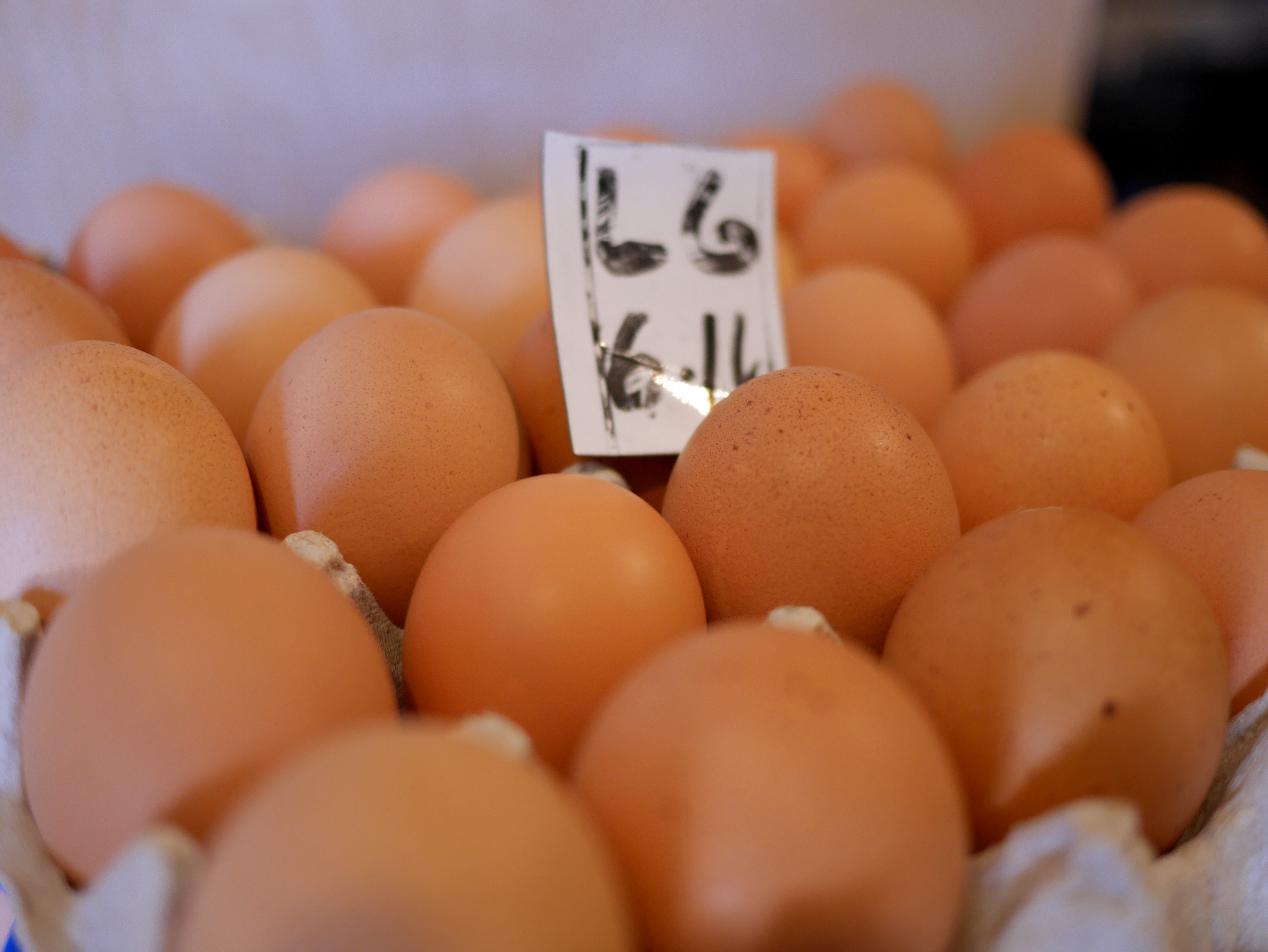
David and Rosie are committed to providing quality, fresh eggs to their customers. “We go out of our way to get a good product,” says David and it all starts with the health of the hens. If the farmers keep their hens health and feed them a well balanced diet, the number of broken shells goes down dramatically. By adjusting the protein content of the feed, the farmer can influence the size of eggs. Adding supplements like calcium-rich oyster shells helps to strengthen the shells.
Dayspring Eggs are considered “free range,” which means the hens are never kept in cages, but rather, allowed to roam around their home. At David and Rosie’s, the hens spend most of their time in a shaded hoop-house structure with open floors and free access to food and water. Every couple of days, they are let out into a larger fenced yard to peck around in the grass.
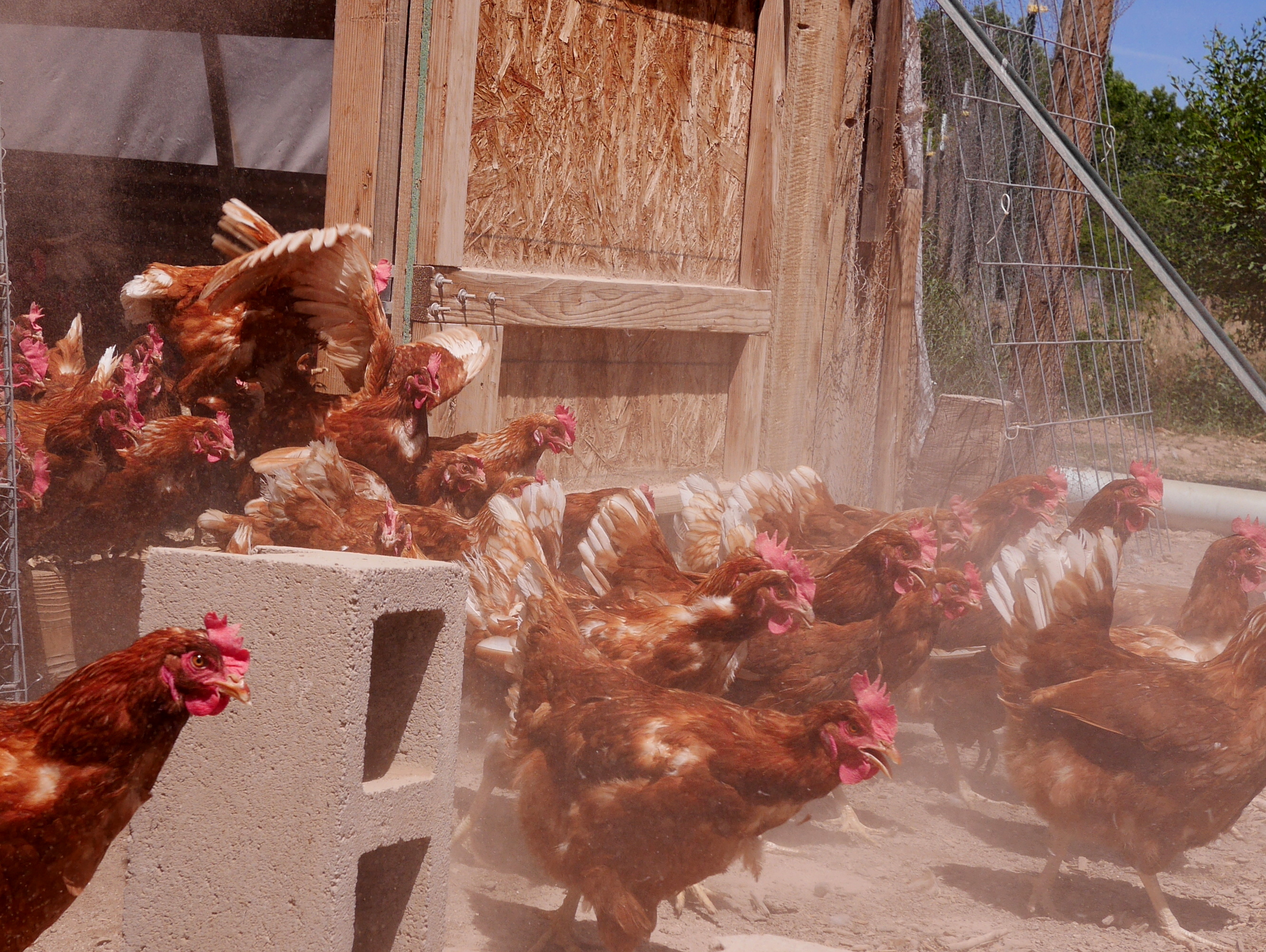
Terminology in the egg industry can be confusing and misleading. The terms “cage free” and “free range” are unregulated, so it’s important to understand exactly what a producer means when they use these words. In many large chicken houses, free range can mean that the hens only have limited access to a small dirt patch through a tiny door in their dark barn. “It’s a mockery,” says David.
None of the Dayspring hens are ever given antibiotics, and David says there’s really no reason to. He rarely has disease problems with his birds. He attributes it to the fact that the chicken house is exposed to the natural sanitizing effect of UV rays from the sun. Plus, the birds have plenty of room to move around and plenty of ventilation from the open air.
While David and Rosie give their other farmers freedom to make choices about how their hens are raised, they are all kept to a high standard of a free roaming living environment, access to the outdoors, no antibiotics, and non-GMO corn. When demand outstrips their ability to supply enough eggs, Dayspring also reaches out to some larger egg producers in Olathe and Montrose. When they resort to this, they also only purchase non-GMO, free range eggs (often from certified organic barns).
When asked if they’ve ever considered going in the direction of certified organic eggs, David says it’s not what really matters to him. Though they can fill orders of specifically organically-raised eggs if a customer requests it, providing eggs that are super fresh and from hens that were raised healthfully and humanely is most important.
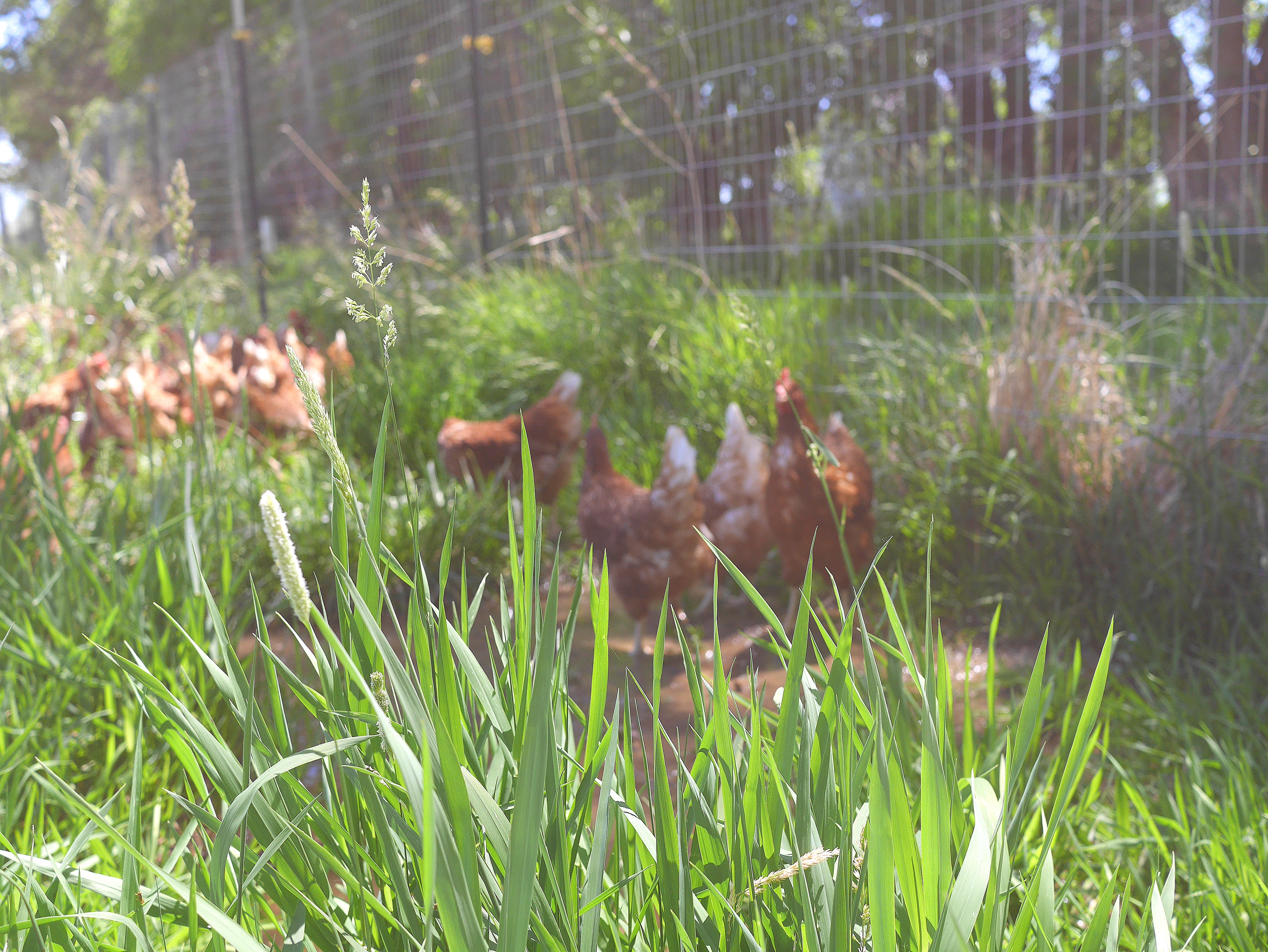


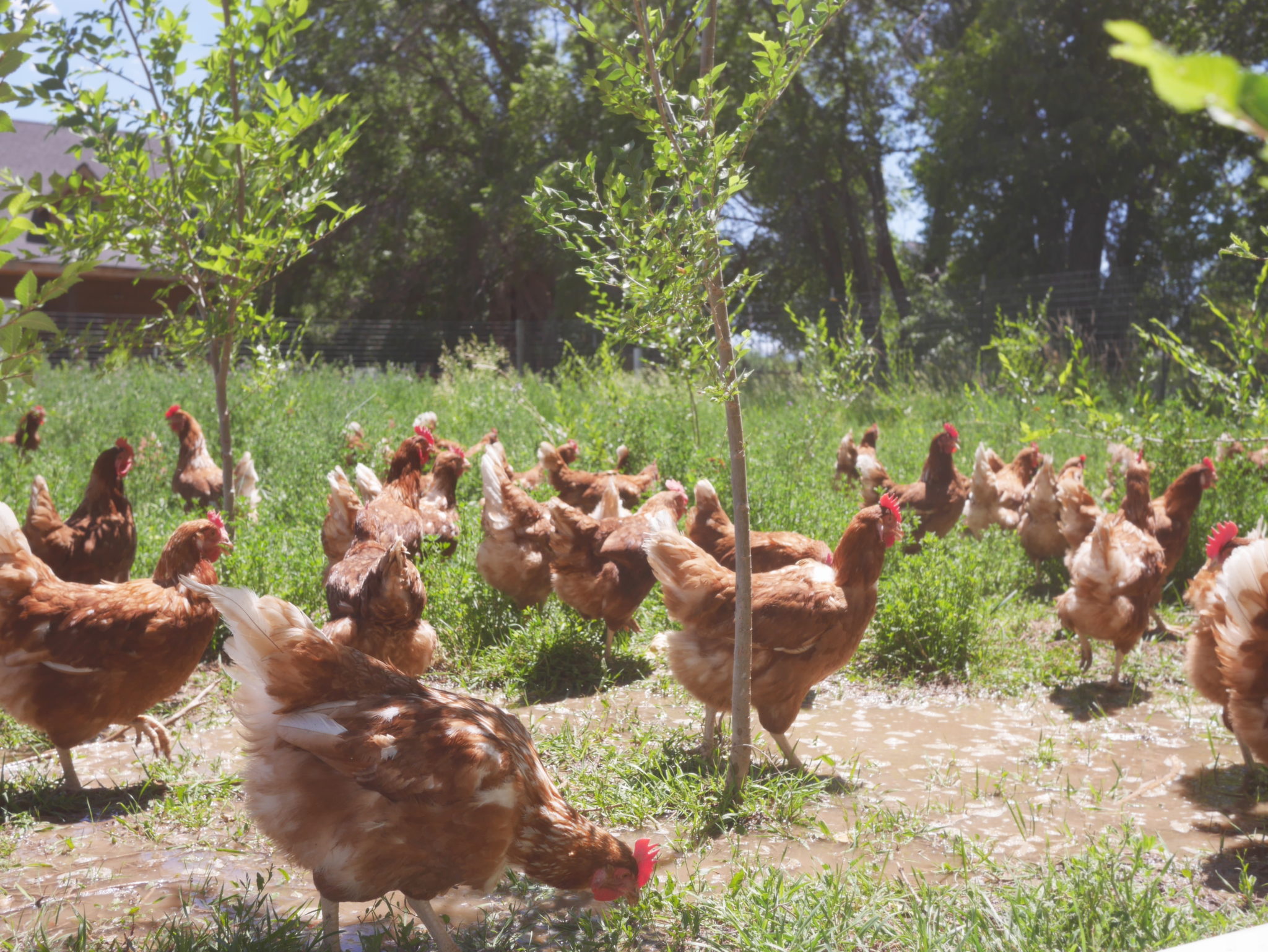
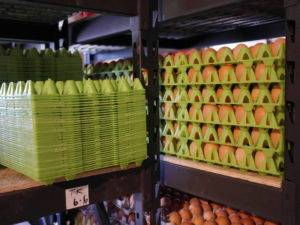
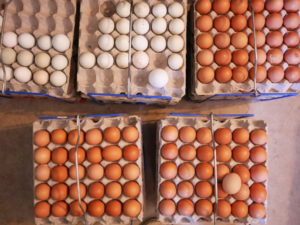
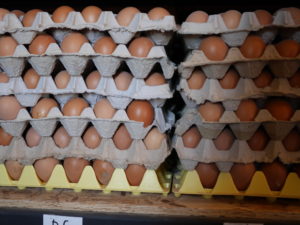
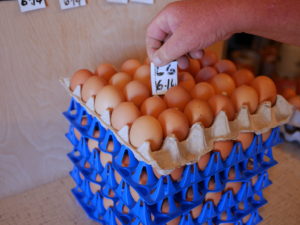
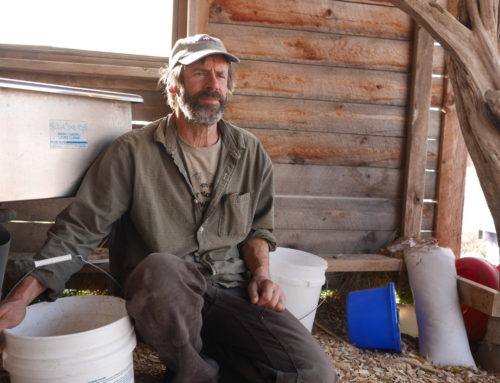
![Farmers in Focus: Zimmerman Pork [and veggie] Farm](https://farmrunners.com/wp-content/uploads/2017/05/p1840797-e1679522915634-500x383.jpg)